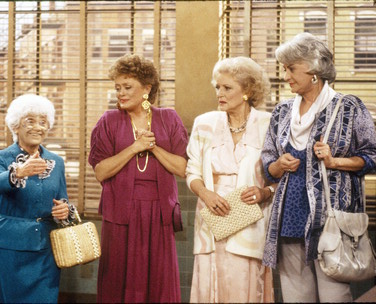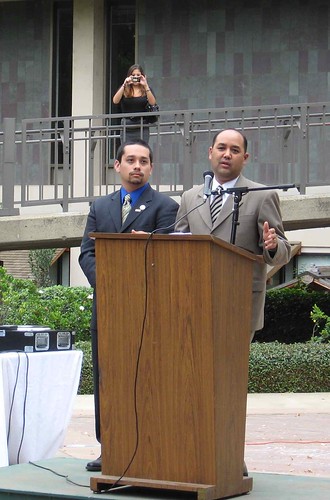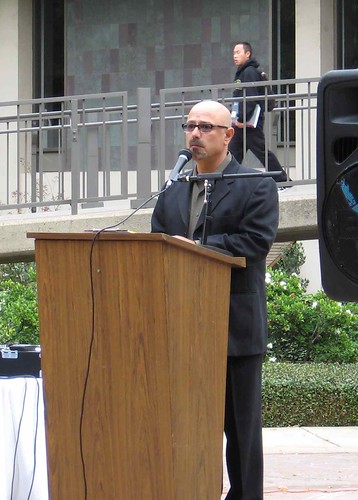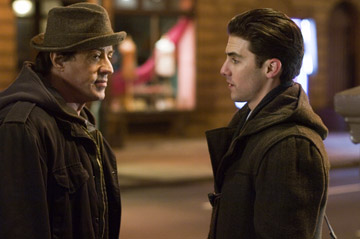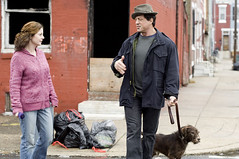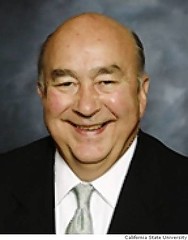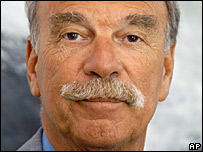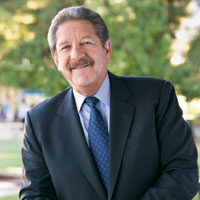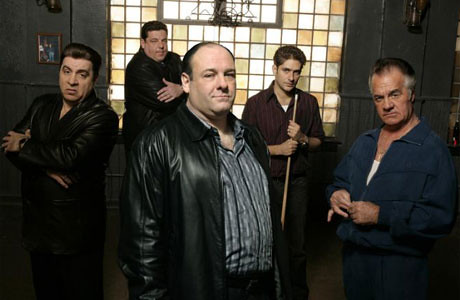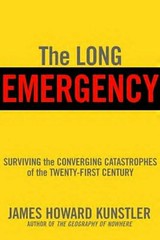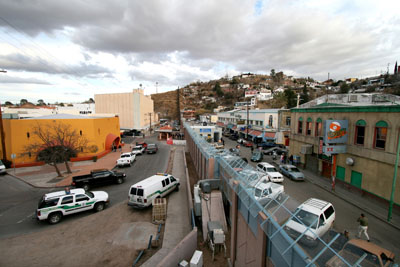True, there are some catchy tunes, but except for Defying Gravity, none seems to have latched onto the collective musical consciousness like tunes from some musicals or the latest Susan Boyle CD. Maybe that's a good thing. How many tunes like Over the Rainbow (from the 1939 movie) can there be?
But musical likes aside, the tale told in Wicked is actually incredibly uplifting - in a different way from the movie starring Judy Garland. In that film, one lesson is 'there's no place like home.' Another, perhaps, is check to see if you are wearing magic shoes.
But the lesson in Wicked is, well, hold on just a minute ...
Right here I have to offer a disclaimer that this is a spoiler review. If you believe you are going to see Wicked in the theatre, read no further. Read no further because the punchline to the whole movie, is, well, a punchline and shocker/surprise. And I would hate to spoil it. So stop here.
Stop!
Still reading? Okay, proceed at your own risk through this enchanted forest, er, review.

Teal Wicks - as the 'Wicked' Witch of the West
Wicked is the tale of the Wicked Witch of the West from birth until the time Dorothy tosses a bucket of water on her, mistakenly believing she was putting out a fire, when in fact, she was melting the witch down to nothingness.
Or so you have thought ever since seeing Judy Garland and her little dog Toto taking on Margaret Hamilton (in the role of the witch) in that film.
In Wicked, the witch has a name - Elphaba - and a family, including a younger sister, a father and mother. And in Wicked, Elphaba grows up and goes away to school, where she has a roommate named Glinda - who is destined to be a good witch.
In Wicked, it becomes clear early in the play that distinguishing between good and evil can be complicated.
But complications aside, what was uncomplicated was a stunning singing and acting performance by Teal Wicks as Elphaba, who even though painted green - and wearing odd-looking glasses - was still drop-dead gorgeous from 20 rows back. Perhaps that shade of green might become the new tan for young women of the non-Oz set.

Elphaba at school
We are getting really close to the major spoiler part, so if you ignored earlier warnings, stop now.
Still there? Okay. This really is the point to turn back.
In the 1939 film, the climatic scene in the movie is when Margaret Hamilton gets hit full-on with a bucket of water and melts right down in front of Dorothy's eyes. "I'm melting, I'm melting," Hamilton shrieks. How many times when someone says they don't want to get wet, do people shoot off the rejoinder: Afraid you will melt? Har, Har!
Indeed, my pretty, indeed.
But in Wicked, it turns out the Wicked Witch of the West isn't wicked at all. In fact, she and her boyfriend (A witch with a boyfriend? What kind of play is this?), turn out to be the most virtuous people in the whole show, with the possible exception of Glinda, who learns late about honesty after getting caught up in some evil machinations. A good deal of those evil machinations were the work of the Wizard of Oz himself. In Wicked, he is not always the lovable, bumbling fellow from the 1939 film.
And the Wizard of Oz has a press secretary. Do I need to elaborate on that?

Patty Duke playing the Wizard's press secretary
Wicked Witch Elphaba, who as noted is really not wicked at all, gets labeled wicked as part of a Oz-style political plot. A fall guy - in this case, fall-witch - was needed and Elphaba was convenient. And being green, well, you just can't trust those people can you?
Fear and fear of 'the other,' was played convincingly enough that from the audience some parts were as painful to watch as the 6 o'clock news on any television station.
And yes, at the very end of the play, Dorothy makes a cameo guest appearance complete with water, and Elphaba appears to melt away after being doused.
But wait! She doesn't melt at all. It was trick. Witches don't melt when hit with water. That just an old witches' tale to make people feel less threatened.
Instead, Elphaba reappears and reunites with her boyfriend/love to head off, away from Oz, presumably to live happily ever after.
And the Wizard and his press secretary?
Well, it turns out Glinda the Good Witch could be good - but also mete out some good justice.

Glinda the good witch
Wicked is a stage play that I might want to see again - even knowing the punchline and how the story progresses over two music-filled acts.
It's like watching the 1942 film Casablanca (with Humphrey Bogart and Ingrid Bergman) over and over and over.
In Casablanca, I keep waiting for a different ending. (I want Rick to get on the plane with Ilsa and run away.)
In Wicked, the ending - watching Elphaba head off to somewhere over the rainbow - is arguably the best part of the entire experience.

Elphaba sans
green makeup
















